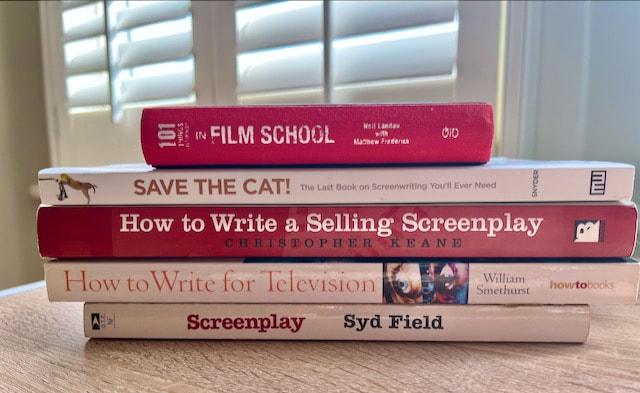The editor who reads too much |
|
Final thoughts on adapting texts for the screen I hope you’ve found this series about adapting a book into a screenplay helpful. It’s by no means exhaustive, or by a professional screenwriter. But since I was able to do it, you can too. I’ll wrap up with a few final thoughts! The differences between films/plays and books Hint: a lot The best way I’ve seen this described is from one of my resources listed below. Neil Landau with Matthew Frederick in their book 101 Things I Learned™ in Film School said: A movie is a novel turned inside out. A novel directly describes the invisible inner motives and emotions of characters and leaves it to the reader to formulate a mental picture of the physical world. A movie, conversely, depicts the visible and implies the unseen. Adapting a book to a screenplay thereby calls for a very difficult inversion: The explicit must be made implicit, and the invisible visible. In films, characters’ inner turmoil must be revealed through actions, facial expressions, words and manner of speaking. It’s a bit taking show, don’t tell, to a new extreme. I recently saw the play Hamnet staged at the Garrick Theatre. Many people in my group left wondering how anyone who hadn’t read the book would understand the play. Always keep the audience in mind: many will have never read the book a film is based on. Think about the person who is a blank slate and write for them. Within the layers, there’s always room to add more for the die-hard fans. An important point to make here is that while pace is critical for novels, for scripts it’s vital to keep it speedy! Look at material that’s similar to yours that’s already out there. Go back far and deep. Remember that I saw Player Kings (all the way back from Part I), and everything after the (first!) intermission was slow? I wish the scriptwriters had thought more about what the audience would be able to follow and enjoy. How can that be done? Well, Player Kings is a theater adaptation of Shakespeare’s Henry IV Part1 and Part 2, which doesn’t have as many adapted versions as Henry V. In 2012 miniseries The Hollow Crown, Tom Hiddleston plays Hal. The King is a 2019 Netflix adaptation of with Timothée Chalamet as Hal. There’s a Kenneth Branagh Henry V film from 1989 and a Laurence Olivier version from 1944. It’s worth watching each version to see how they differently portray similar content and storylines. Each approaches the material with a different creator with a different interpretation. Your reactions to these earlier versions will tell you a lot about how your version can be different! Pay attention to them! Put your stamp on the story! Resources
One note from me: many of my resources were books my mother owned when she was working on her screenwriting career in the mid 1990s. Sadly, her work didn’t ever get picked up, and after she passed away, I grabbed all of her screen writing books in the hopes that one day I’ll find the time to read her script and see if I can’t do some script doctoring. (Never heard of that? See my post on Carrie Fischer’s memoir Wishful Drinking!) Published books
Online
As I find more, I’ll add to this list, but that’s all for now! If you have any thoughts, comments, or questions, don’t hesitate to get in touch with me! Comments are closed.
|
Categories
All
Archives
July 2024
�
Posts on editing
Posts on books
Posts on publishing
Everything Else!
|

